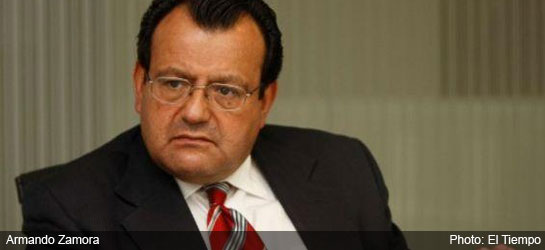
The departing head of Colombia’s oil agency said on Thursday corruption allegations against him were unjust and warned that rising social protests were the main threat to the burgeoning sector.
The Andean country’s National Hydrocarbons Agency (ANH) is credited with helping change the face of Colombia’s oil industry. National output hit historic highs this year of nearly 1 million barrels per day amid a boom in investment.
Armando Zamora resigned this week after eight years running ANH following allegations the agency did not pay all the royalties owed to regions and that it appropriated money to pay scholarships for officials and their children.
Zamora called foreign media outlets to his office to deny wrongdoing, saying ANH had always stayed within the law.
“They’re distorting reality in Congress, accusing me of illegal things, saying it was due to corruption,” Zamora said. “At any rate, I was going to resign.”
The ANH was created in 2003 to handle contracts and other technical issues for the oil sector, and its success is being used by the government as a model to overhaul the accident- and scandal-stricken mining sector.
Latin America’s No. 4 oil producer has attracted billions of dollars in foreign investment in recent years thanks to a U.S.-backed security crackdown on leftist rebels and improved terms for companies operating in extractive industries.
While rebel attacks on oil infrastructure are much less frequent than at the height of the war, protests by local communities around oil fields are an increasing threat for the sector.
“The strategy to fight the FARC (guerrillas) is effective, but for these (social) protests there’s not an effective strategy to handle them, not fight them,” Zamora said.
Zamora accused politicians of using demonstrations for political means in the lead-up to local elections in October. There have been protests at Colombia’s largest producing oil field run by Pacific Rubiales and most recently at a project operated by the country’s No. 4 producer, Petrominerales.
“Some groups … are taking political advantage of the vulnerable situation of the industry,” he said. “It’s very vulnerable to blockades, strikes, and protests.”
The government has yet to announce a replacement for Zamora.

